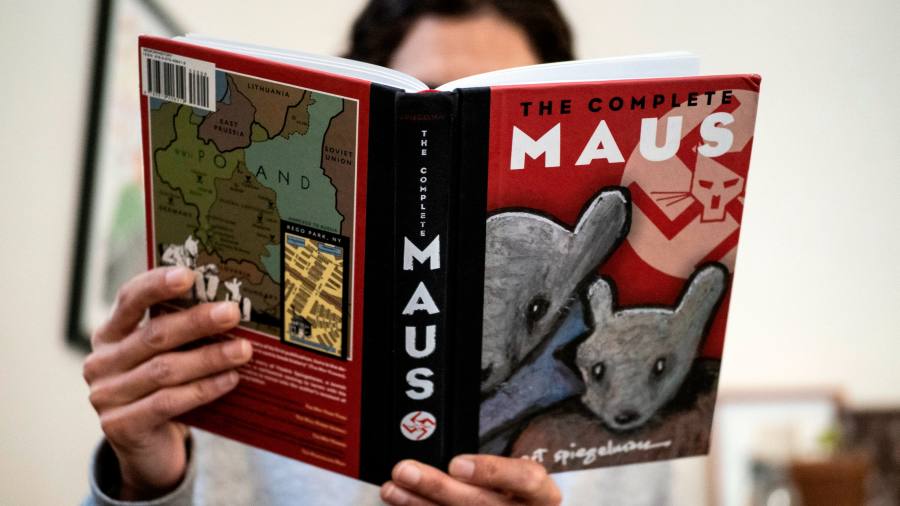
The US looks set to withdraw a record number of books from the country’s schools and libraries this year as America’s culture wars place growing pressure on children, educators and publishers.
Fresh estimates from the American Library Association and PEN America, which campaigns for literary freedom, show a surge in recent efforts by parents, advocacy groups and politicians to withdraw publications they claim are inappropriate for younger readers.
In the latest spat this week, authors including Art Spiegelman, Margaret Atwood and Neil Gaiman denounced an “overzealous” law in Missouri banning distribution of works “harmful to minors”. They said the law had led to the withdrawal of books on Leonardo da Vinci and Michelangelo and graphic novel adaptations of Shakespeare, the Bible and the Gettysburg Address.
Deborah Caldwell-Stone, director for the Office for Intellectual Freedom at the ALA, told the Financial Times: “We’ve seen an enormous increase in demands to censor books. It’s just not abating. We expect to break a record this year. We believe this is because elected officials see this as a political wedge issue, so we’ll continue to see it.”
Parents who previously spoke out individually are now standing for election to school boards and pressing for bans, while Republican politicians in some states have seized on a divisive “wedge” issue distinguishing them from Democrats by introducing legislation.
A law in Florida and legal action in Virginia seek to prevent distribution to children of books related to sexuality, while in Texas a bill would require publishers to include age-appropriate ratings on their works.
The growing list of books often targets alleged sexual content. But titles pre-emptively withdrawn pending review have included memoirs of personal experiences of racism by black children and religious minorities, and even Spiegelman’s classic story Maus documenting his family’s experiences under Nazism.
The ALA said it tracked 729 efforts to remove nearly 1,600 titles during 2021, with most in the final months of the year. It has already identified 800 actions in 2022 involving 1,651 titles — more than double the annual levels before the coronavirus pandemic.
PEN said over 100 books were prohibited this week alone in one school district in Texas and a further hundred in South Carolina. Jonathan Friedman, its director of free expression and education programmes, said: “We have continued to see an avalanche of ongoing book bans and censorship tactics have become more aggressive.”
The Association of American Publishers, the industry body that has joined a coalition resisting the clampdown, stated: “Parental input and community standards have always played an important role in developing local educational practices, but the Supreme Court has made clear that these practices must be consistent with the First Amendment and must not infringe on the rights of other students.”
Jeff Trexler, interim director of the Comic Book Legal Defense Fund, compared the current period with the repression of comic stores in the 1950s, and said the recent escalation reflected growing scrutiny by parents of their children’s reading habits during lockdowns and increased sharing between different activists on social media.
“Since Covid, it has become a mass movement. We’re reliving an old battle. With graphic novels, parents are seeing modes of communication they don’t like and think do not help teach reading.”
However, Tiffany Justice from Moms for Liberty, an advocacy group created last year that now claims 100,000 members in 42 states, said: “This is not book banning. That’s a fake narrative crafted by the progressive far left because they are losing the control of our schools they had for the past 40 years. It’s about curating a children’s library to not include certain content. It’s called being a responsible adult.”
She dismissed as “lies” reports of some of the books that had been targeted for withdrawal and stressed her organisation was focused on opposing exposure of children to “graphic sexual content” and “toxic critical race theory”.
“Marxist ideology has taken over American education,” she said.
Amir Soltani, author of the graphic novel Zahra’s Paradise about the persecution of young protesters in Iran that was withdrawn in Missouri, said: “Who guards the guards? Will we replace the librarians with mullahs?”